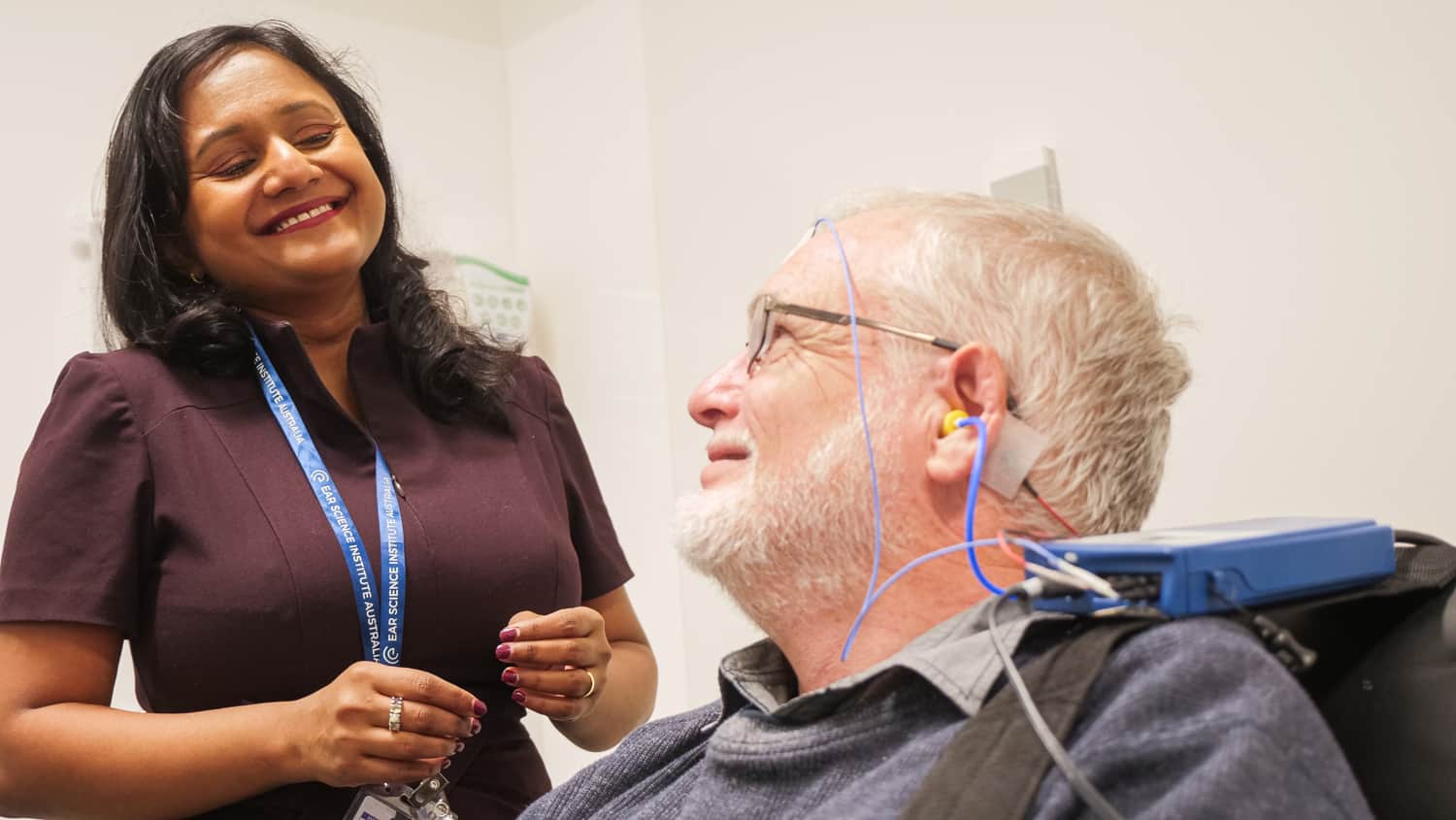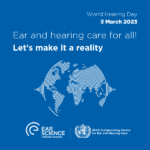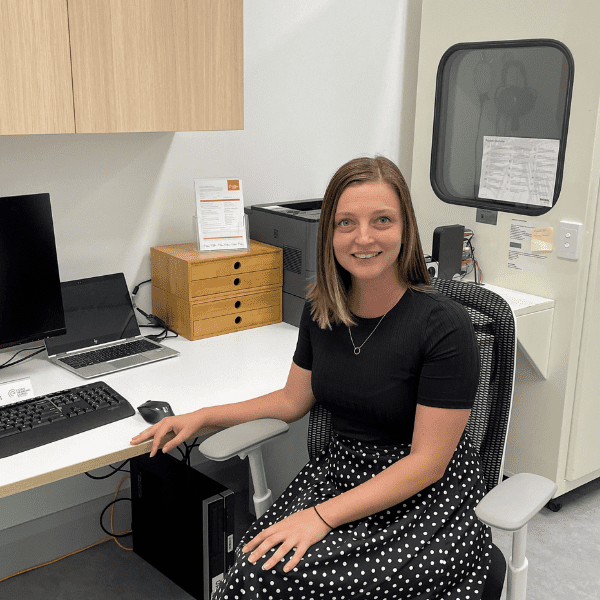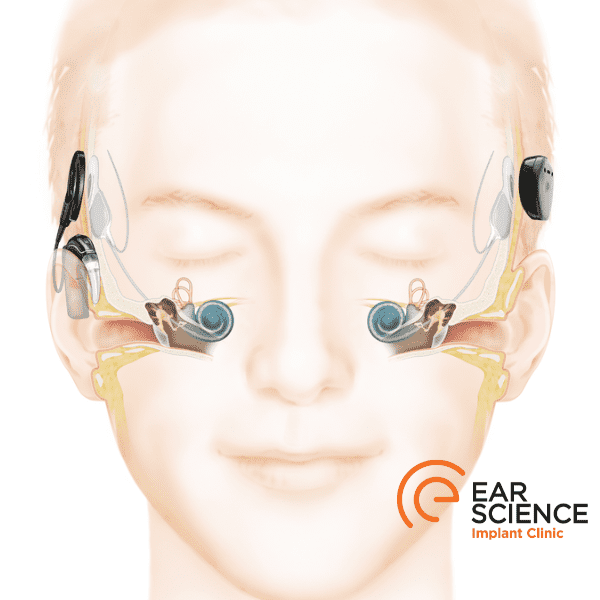In this episode, Dr Dona Jayakody will share how and why Hearing Loss contributes to cognitive decline, and how we can reduce the risk of dementia as we all get older.
In this episode, you will learn
1.10 | What is cognitive decline? What are ‘normal’ memory issues versus when does it become a problem?
2.05 | Why and how does untreated hearing loss impact on depression, anxiety, stress, loneliness, isolation and increase the risk of cognitive impairment and dementia?
3.15 | Why it’s really important to seek help early, to normalise getting hearing checked during midlife, like seeing the dentist or optometrist.
4.58 | Does research show Hearing Aids and Cochlear Implants are an effective treatment to stave off dementia?
5.35 | Ear Science is leading a large randomised controlled trial (HearCog) to see if we can delay or arrest dementia by treating Hearing Loss, recruiting participants now.
6.16 | What is the feedback from trial participants as a result of getting hearing aids?
9.05 | If we have loved ones experiencing dementia – is treating Hearing Loss important? Why is this, how does it help?
11.50 | What is the impact of untreated hearing loss on mental wellbeing, psychosocial wellbeing, cognitive functions, quality of life in indigenous older adults? What are the barriers to seeking treatment? If we overcome these barriers, what impact are we going to see?
15.00 | Importance of using non-verbal cognitive assessments/screening, to get an accurate indication of cognitive function.
18.45 | Key take away messages
This podcast provides information of a general nature and does not constitute medical advice.
VIEW TRANSCRIPT OF EPISODE
Resources mentioned
WAIT 7-8 YEARS TO SEEK TREATMENT
“1 in 6 Australians experience Hearing Loss, 1 in 4 over the age of 65” | Hearing Care Industry Association. Hearing for life: The value of hearing services for vulnerable Australians Deloitte Access Economics, Canberra, Australia. 2020.
Jayakody DMP, Almeida OP, Speelman CP, et al. Association between speech and high-frequency hearing loss and depression, anxiety and stress in older adults. Maturitas. 2018;110:86-91.
Jayakody DMP, Friedland PL, Eikelboom RH, Martins RN, Sohrabi HR. A novel study on association between untreated hearing loss and cognitive functions of older adults: Baseline non-verbal cognitive assessment results. Clinical otolaryngology : official journal of ENT-UK ; official journal of Netherlands Society for Oto-Rhino-Laryngology & Cervico-Facial Surgery. 2018;43(1):182-191.
Jayakody, D.M.P., Friedland, P.L., Nel, E., Martins, R.N., Atlas, M.D., and Sohrabi, H.R. (2017). Impact of Cochlear Implantation on Cognitive Functions of Older Adults: Pilot Test Results. Otol Neurotol 38, e289-e295.
Jayakody, D.M.P., Almeida, O.P., Ford, A.H., Atlas, M.D., Lautenschlager, N.T., Friedland, P.L., Robinson, S., Makate, M., Coetzee, L., Liew, A.S.P., and Flicker, L. (2020). Hearing aids to support cognitive functions of older adults at risk of dementia: the HearCog trial- clinical protocols. BMC Geriatrics 20, 508.
https://www.sciencedaily.com/releases/2019/08/190808091401.htm
Flicker, L., and Holdsworth, K. (2014). “Aboriginal and Torres Strait islander people and dementia: A review of research”. Alzheimer’s Australia.
The National Aboriginal and Torres Strait Islander Health Survey 2018-19 reported that 34% of people aged 55 years & over had self-reported hearing problems, while 82% aged 55 years and over showed a hearing loss at least in one ear on objective hearing assessment
ABS The National Aboriginal & Torres Strait Islander Health Survey (NATSIHS) 2018-19 report. Canberra, Australia; 2020.
Jayakody DMP, Friedland PL, Martins RN, Sohrabi HR. Impact of Aging on the Auditory System and Related Cognitive Functions: A Narrative Review. Frontiers in Neuroscience. 2018;12(125).
Not being able to hear could increase the risk of over/underestimating the patient’s degree of cognitive impairment (Dupuis et al., 2015)
- MMSE 4/30 points require hearing
- MoCA 10/30 points require hearing
- GPCOG 5/9 points require hearing
WA Centre for Health and Ageing






